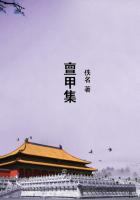"It may be so, Allan. But even if another's heart is black, should yours be black also? Oh! I will come, though it be to my death," and, rising from the stool with the most dreadful groan, he began to divest himself of the tattered blanket in which he was wrapped up.
"Oh! Allan, my father must not go; it will kill him," exclaimed Marie, who took a more serious view of his case than I did.
"Very well, if you think so," I answered. "And now, as it is time for me to be starting, good-bye."
"You have a good heart, Allan," said Marais, sinking back upon his stool and resuming his blanket, while Marie looked despairingly first at one and then at the other of us.
Half an hour later I was on the road in the very worst of tempers.
"Mind what you are about," called Vrouw Prinsloo after me. "It is not lucky to save an enemy, and if I know anything of that stinkcat, he will bite your finger badly by way of gratitude. Bah! lad, if I were you I should just camp for a few days in the bush, and then come back and say that I could find nothing of Pereira except the dead hyenas that had been poisoned by eating him. Good luck to you all the same, Allan; may I find such a friend in need. It seems to me that you were born to help others."
Beside the Hottentot Klaus, my companions on this unwelcome journey were three of the Zulu Kaffirs, for Hans I was obliged to leave in charge of my cattle and goods with the other men. Also, I took a pack-ox, an active beast that I had been training to carry loads and, if necessary a man, although as yet it was not very well broken.
All that day we marched over extremely rough country, till at last darkness found us in a mountainous kloof, where we slept, surrounded by watch-fires because of the lions. Next morning at the first light we moved on again, and about ten o'clock waded through a stream to a little natural cave, where Klaus said he had left his master. This cave seemed extremely silent, and, as I hesitated for a moment at its mouth, the thought crossed my mind that if Pereira were still there, he must be dead. Indeed, do what I would to suppress it, with that reflection came a certain feeling of relief and even of pleasure. For well I knew that Pereira alive was more dangerous to me than all the wild men and beasts in Africa put together. Thrusting back this unworthy sentiment as best I could, I entered the cave alone, for the natives, who dread the defilement of the touch of a corpse, lingered outside.
It was but a shallow cavity washed out of the overhanging rock by the action of water; and as soon as my eyes grew accustomed to its gloom, I saw that at the end of it lay a man. So still did he lie, that now I was almost certain that his troubles were over. I went up to him and touched his face, which was cold and clammy, and then, quite convinced, turned to leave the place, which, I thought, if a few rocks were piled in the mouth of it, would make an excellent sepulchre.
Just as I stepped out into the sunlight, and was about to call to the men to collect the rocks, however, I thought that I heard a very faint groan behind me, which at the moment I set down to imagination. Still, I returned, though I did not much like the job, knelt down by the figure, and waited with my hand over its heart. For five minutes or more I stayed here, and then, quite convinced, was about to leave again when, for the second time, I heard that faint groan. Pereira was not dead, but only on the extreme brink of death!
I ran to the entrance of the cave, calling the Kaffirs, and together we carried him out into the sunlight. He was an awful spectacle, mere bone with yellow skin stretched over it, and covered with filth and clotted blood from some hurt. I had brandy with me, of which I poured a little down his throat, whereon his heart began to beat feebly. Then we made some soup, and poured that down his throat with more brandy, and the end of it was he came to life again.
For three days did I doctor that man, and really I believe that if at any time during those days I had relaxed my attentions even for a couple of hours, he would have slipped through my fingers, for at this business Klaus and the Kaffirs were no good at all. But I pulled him round, and on the third morning he came to his senses. For a long while he stared at me, for I had laid him in the mouth of the cave, where the light was good, although the overhanging rocks protected him from the sun. Then he said:
"Allemachte! you remind me of someone, young man. I know. It is of that damned English boy who beat me at the goose shooting, and made me quarrel with Oom [uncle] Retief, the jackanapes that Marie was so fond of. Well, whoever you are, you can't be he, thank God."
"You are mistaken, Heer Pereira," I answered. "I am that same damned young English jackanapes, Allan Quatermain by name, who beat you at shooting. But if you take my advice, you will thank God for something else, namely, that your life has been saved."
"Who saved it?" he asked.
"If you want to know, I did; I have been nursing you these three days."
"You, Allan Quatermain! Now, that is strange, for certainly I would not have saved yours," and he laughed a little, then turned over and went to sleep.
From that time forward his recovery was rapid, and two days later we began our journey back to Marais's camp, the convalescent Pereira being carried in a litter by the four natives. It was a task at which they grumbled a good deal, for the load was heavy over rough ground, and whenever they stumbled or shook him he cursed at them. So much did he curse, indeed, that at length one of the Zulus, a man with a rough temper, said that if it were not for the Inkoos, meaning myself, he would put his assegai through him, and let the vultures carry him.
After this Pereira grew much more polite. When the bearers became exhausted we set him on the pack-ox, which two of us led, while the other two supported him on either side. It was in this fashion that at last we arrived at the camp one evening.















